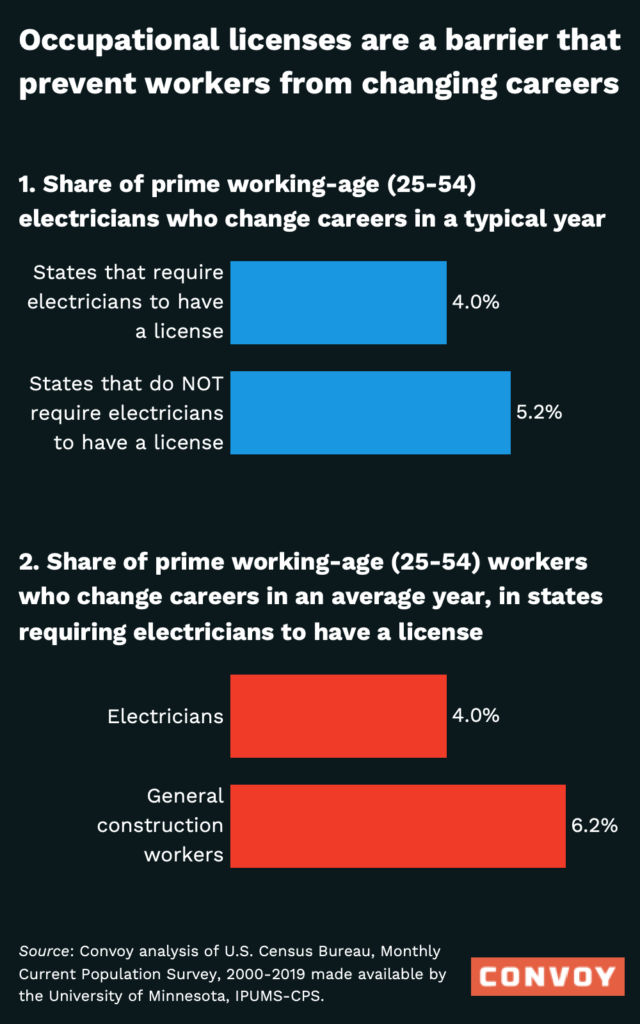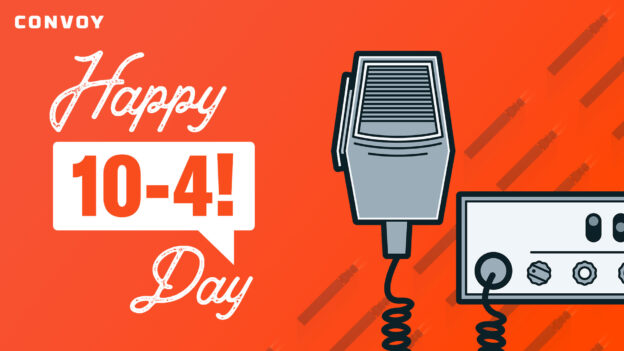Occupational Licenses as a Barrier to Exit for Skilled Workers
Carriers, Freight Research • Published on February 18, 2020
Carrier bankruptcies over the past year have sparked some fears about whether there will be enough truck drivers when freight demand eventually rebounds. The freight industry is cyclical and the market can quickly shift. But fears that recent bankruptcies among trucking companies will prompt meaningful numbers of drivers to seek jobs in other industries may be misplaced.
Economists often view occupational licenses — such as the Commercial Driver’s License (CDL) and federal or state government operating authority (commonly known as an “MC” number) that heavy truck drivers are required to have — as a regulatory barrier that slows the entry of new workers into the occupation.
But these licenses can also be viewed as a barrier to exit — slowing the pace that workers decide to move into different jobs. Beyond the investment in their education and training, workers who are required to obtain a license may be more reluctant to change careers in part because they have spent time and resources to obtain the license. (Other research suggests that state-issued licenses can limit workers’ willingness to move across state lines.)
One way to test this idea is to look at how often electricians change careers and move into a new occupation. According to the National Council of State Legislatures (NCSL), about 20 states require electricians to obtain a license while 30 states and the District of Columbia do not.
If we look at electricians over the past two decades who have remained employed over the course of a year and control for some basic demographic characteristics such as age, race, sex and time trends, electricians who live in a state that requires them to have a license were 52 percent less likely to move into a new occupation than electricians who lived in a state that does not require them to have a license.[1]
Similarly, if we compare electricians with general construction laborers in the 20 states that do require electricians to carry a license, but do not require a license from general construction workers — and again control for age, race, sex and time trends — electricians are 83 percent less likely to change careers than general construction laborers.
Of course, all heavy truck drivers are required to obtain either federal or state licenses — and for good reason: Driving a tractor trailer requires specialized skills and knowledge of extensive rules and safety procedures. But it’s also worth recognizing that truck drivers are skilled professionals. Similar to workers with professional degrees or certifications, there is a “stickiness” to skilled trades such as commercial truck driving. This is particularly true for trucking compared to other skilled trades since the capital investment and startup costs (e.g., buying a heavy truck and trailer) associated with starting a trucking company are so high.

More often than not, truck drivers don’t just move on to another occupation when the trucking industry goes through a soft patch. Truck drivers are no more likely to change careers during freight industry slowdowns than they are when demand is robust for their skills — an important point to keep in mind given recent bankruptcy headlines.

View our economic commentary disclaimer here.



